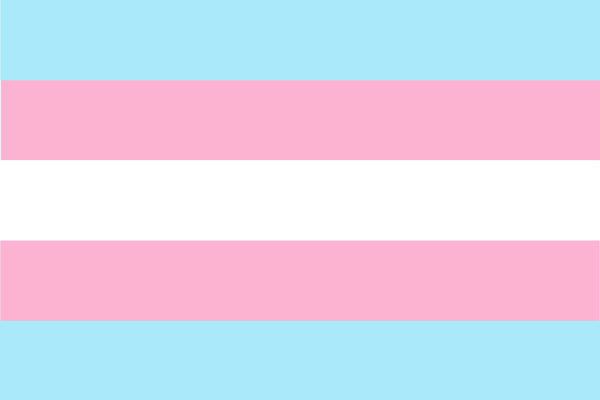Each year, Transgender Awareness Week runs from November 13th leading up to Transgender Day of Remembrance on the 20th.
Transgender Awareness Week is an annual event celebrated from November 13th through 19th, with Transgender Day of Remembrance observed on November 20th, memorializing those who have been lost to fatal violence. As GLAAD explains, “Transgender Awareness Week is a week when transgender people and their allies take action to bring attention to the community by educating the public about who transgender people are, sharing stories and experiences, and advancing advocacy around the issues of prejudice, discrimination, and violence that affect the transgender community.” Again this year, GLAAD encourages those who have miss to watch DISCLOSURE, a documentary available on Netflix that “explores the history of trans representation in TV and film in unprecedented form, revealing how Hollywood simultaneously reflects and manufactures people’s deepest anxieties about gender.” (GLAAD)
While we celebrated Rachel Levine being confirmed as the first openly trans federal official earlier this year, we face deeply troubling news of 102 anti-trans bills proposed in 7 states. We need to take action to resist threats to transgender rights while we work to improve inclusion both in the legal profession and everywhere.
Transgender Day of Remembrance: November 20th
Transgender Day of Remembrance began in 1999 with a vigil commemorating all the transgender lives lost to violence in the year following the 1998 murder of Rita Hester in Boston. As reported last year by CNN,
Transgender advocate Gwendolyn Ann Smith started the Transgender Day of Remembrance in 1999 to honor not only Hester’s memory, but also all the other victims lost to anti-transgender violence, said Schmider, from GLAAD.
“The vigil was really created to commemorate all the transgender people lost to violence since Rita Hester’s death,” Schmider said. “And it became a really important tradition. It’s become an annual recognition that people acknowledge, and participate, in every year.”
This year continues the unacceptable trend of having lost more transgender lives to violence in the current year than previous years, the majority of them Black or Latinx. Human Rights Campaign has recognized many here. Fatal violence also disproportionately affects the indigenous community. Find out more in this February article recognizing a Day of Remembrance in South Dakota for the Missing and Murdered Indigenous Women, Children, and Two-Spirit or LGBT People. You can also learn more and contribute through Tate Topa Consulting.
Inclusion in the Legal Profession
Inclusion important both for the well-being of the legal community and in service to clients. This week offers a practical reminder for allies to focus on making it a priority to be informed, to slow down our thinking to apply what we’re learning in often uncomfortable ways, and to be willing to make continued sacrifices like having uncomfortable, difficult conversations and speaking up when it feels risky for our own careers.
Both as advocates for justice and members of the most isolating profession, it’s particularly critical for lawyers to commit to shifting our mindsets and behaviors to adopt new understandings of the norm in terms of gender. As expressed in Transcending the Binary: Inclusion for Transgender and Non-Binary Attorneys, by Lea S. Gutierrez, Director of Diversity & Inclusion at the Illinois Attorney Registration and Disciplinary Commission:
Maybe the people with whom we interact are transgender and/or non-binary, and we don’t know it, or perhaps they have transgender and/or non-binary people in their lives that they care about. And even if none of that is the case, all of us will likely interact with transgender colleagues, litigants and witnesses, opposing counsel, clients, court personnel, and others at some point in the course of our practice. Therefore, instead of presuming that being cisgender is the norm, we should shift our mindset to presuming the opposite. This will force us to evaluate our behaviors and our current workplace processes, practices, culture, and climate relative to transgender inclusion under the premise that many people do not fit neatly into the binary of male or female. Awareness of this issue can help break down the barriers to full equality and inclusion in the workplace and the profession that transgender and non- binary attorneys face.
To be an ally, learn about others’ experiences regularly, and prioritize action over our own comfort. We can listen both by finding information online and by making new personal and professional connections with diverse backgrounds. A couple starting places to learn about transgender experiences in the legal profession include Transgender Lawyers That Inspire Us from Columbia Law School’s Gender & Sexuality Blog in 2015 and Getting Real: Transgender Attorneys Talk About Coming Out in the Workplace from the Minority Corporate Counsel Association. Additional resources are included in the next section.
Tips for working with transgender clients can be found here from CB Baga, an associate at Faegre Baker Daniels and founder of the Trans Legal Clinic.
Related Updates & Resources:
Transgender Day of Visibility Resource Listing from GLSEN
Tips on Making Your Practice Gender/LGBTQ Inclusive (ABA Law Practice Today January 2020)
Creating a Trans-Inclusive Workplace (Harvard Business Review, April 2020)
Transitioning in the Workplace: A Guide for Trans Employees (Human Rights Campaign)
Trans Toolkit for Employers (Human Rights Campaign)
It’s Gotten Better to Be LGBTQ in Big Law, but Struggles Remain (Bloomberg Law, June 2020)
Tips for Allies of Transgender People (GLAAD)
‘The Candy Book’ and 5 Other Reads that Defy ‘Outdated Rules of Gender’ (CNN, March 2021)
LGBTQ+ Legal Victory in History (GQ, June 2020)
Remembering Robina Asti, 99-Year-Old Pilot, WWII Veteran, and Transgender Icon (CBC Radio, 2021) – Hat tip to the National LGBT Bar
Free & Confidential Consultations:
Lawyers, law students, and judges in Massachusetts can discuss concerns with a licensed therapist, law practice advisor, or both. Find more on scheduling here.
. . .
Annual posts under the same title published in previous years redirect here.




